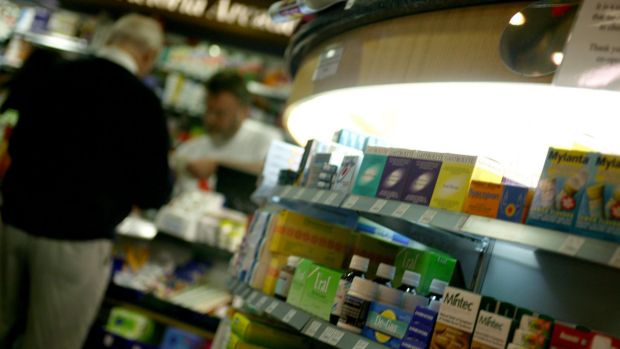Doctors fear people could be put at risk by a new test for coeliac disease being offered at chemists around the country. They say the test, which is claimed to be 93 per cent accurate, could falsely diagnose up to half the people it identifies as having the serious medical condition.
They also fear it could give false reassurance to people who test negative but whose symptoms are caused by deadly problems such as bowel cancer, and leave patients without the support they need from a qualified medical professional.
 Doctors are concerned about a new test for coeliac disease being offered at chemists. Photo: AFR
Doctors are concerned about a new test for coeliac disease being offered at chemists. Photo: AFR
Coeliac disease is a severe condition in which the consumption of gluten causes the immune system to attack the small intestine. It is thought to affect about one in every 100 people, and can only be definitively confirmed with a biopsy.
But the Amcal, Amcal Max and Guardian pharmacies have begun heavily promoting a new blood test, which costs $45 and is claimed to be a “simple and convenient” screening test for the disease.
Australian Medical Association NSW head Saxon Smith, who has coeliac disease, said it was inappropriate to diagnose the condition “between the toothpaste and the toilet paper in a chemist”.
“It’s a serious illness, and pharmacists are not trained to diagnose medical conditions,” he said. “The test itself is unreliable and you can quote their own studies on that.
“One of the biggest studies [which has not been completed is saying there is a only a 49 per cent chance of you being positive for the disease if you test positive.”
Dr Smith said a screening survey given to people before the blood test asked about an “exceptionally vague” list of symptoms, including bloating and abdominal pain, unexpected weight loss and nausea.
Some of the symptoms could also indicate the presence of other serious conditions such as bowel or stomach cancer, inflammatory bowel disease or thyroid disease.
The test has been promoted in catalogues and in the media, including on Melbourne’s Channel 7 news on Monday night.
Channel 7’s health editor, celebrity doctor Andrew Rochford, is also the “health ambassador” for Amcal, and appears in the advertising for the test. However, a spokesman for the news bulletin said Dr Rochford had no involvement in its story.
Gastroenterological Society of Australia secretary Katie Ellard said she was also concerned about the potential for misdiagnosis.
“I just do not think a pharmacy is the type of place where people can have a proper history taken and they can be counselled about what the result of the test may mean,” she said. “Any blood test can be a false-negative, because you get people who just aren’t eating enough pies or bread [to trigger the signs of the disease] and it’s not going to be valid.”
She said undiagnosed coeliac disease could be potentially deadly, or lead to serious conditions such as osteoporosis or cancer. “It’s not something you want to trifle with.”
Gary Dunne, the chief operating officer of Sigma Pharmaceuticals, which owns the Amcal and Guardian brands, claimed the test was 93 per cent accurate, although he did not provide Fairfax Media with a reference for that figure.
He said there was a “structured referral process” between pharmacists and GPs for people found to have the condition.
“Easy access to accurate coeliac screening will bring an improved quality of life to thousands of patients,” he said.
Dr Rochford’s representative, IMG Talent, did not respond to Fairfax Media’s request for comment.
Coeliac disease facts:
- Thought to affect one in 100 people, possibly more.
- When a sufferer eats foods containing gluten, the immune system attacks the lining of the small bowel.
- The lining of the bowel becomes flattened and inflamed.
- This causes gastrointestinal symptoms, and sometimes problems absorbing the nutrients from food.
- Some people experience mild gut problems after eating gluten but do not have coeliac disease
